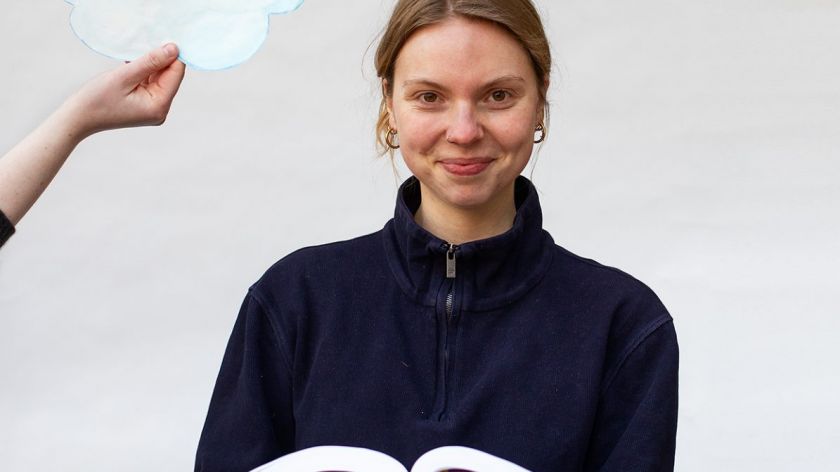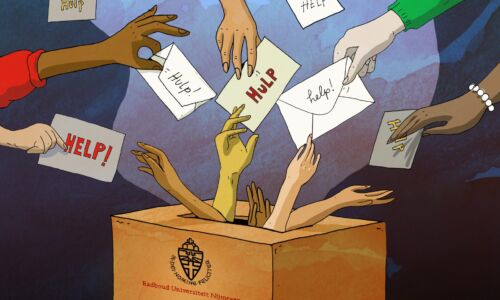This tiny thing called ‘happiness’
-
 Jara Majerus, photo: Dick van Aalst.
Jara Majerus, photo: Dick van Aalst.
Life can get quite complicated - and sometimes, you need help from the world's greatest philosophers to figure it out. In her new blog, Jara Majerus looks at life through the philosophical monocle, employing the help of some of history's brightest thinkers. Today: Aristotle and the question of happiness.
‘Hey, I just wanted to ask whether you are happy!’ This is a message a friend of mine recently sent me out of nowhere. Now, I don’t know if I am the only one with friends who text these messages at 08:05 in the morning, but for everyone who does not have someone who wakes them up with existential questions, let me tell you: your morning coffee will taste more bitter than usual.
Even though my friend had just wanted to check in with me, my morning was now predetermined to be anything but carefree. I spent multiple hours contemplating happiness, thinking that I needed to know what happiness actually was before being able to answer my friend’s question.
Of course, I have encountered the concept of happiness before. In fact, it is almost impossible not to stumble upon happiness. Whether it is Mahatma Gandhi, Mother Theresa, John Lennon, or any other famous person: everyone seems to have an idea of what happiness is supposed to be. But one of the first people who put this happy bee in the bonnet of humans was Aristotle when he wrote: ‘Happiness is the meaning and the purpose of life, the whole aim and end of human existence.’
‘It is almost impossible not to stumble upon happiness’
But if happiness is the meaning and purpose of life, then what happens if I feel unhappy? I will be honest: when I read Aristotle’s quote, I panicked for a minute or two. Would my life be meaningless if I was unhappy? It was like an existential angst was threatening to overwhelm me. I had to pull the emergency brakes. In other words: I had to eat a buttered piece of bread topped with chives.
When I took the first bite, it hit me like a truck: this was happiness. At that moment, that slice of bread was all I needed, and I wondered whether I had spent my entire morning overthinking ‘happiness’ by focusing on big words like ‘purpose’ and ‘meaning’. After all, it seemed like something as mundane as a slice of bread with some butter and some chives was enough to make me feel happy. Considering this change of events, I concluded that happiness is no humongous goal. It is small and ordinary! And so, I took my phone and replied to my friend, saying: ‘I am eating buttered bread with chives. So yes, I am happy.’



